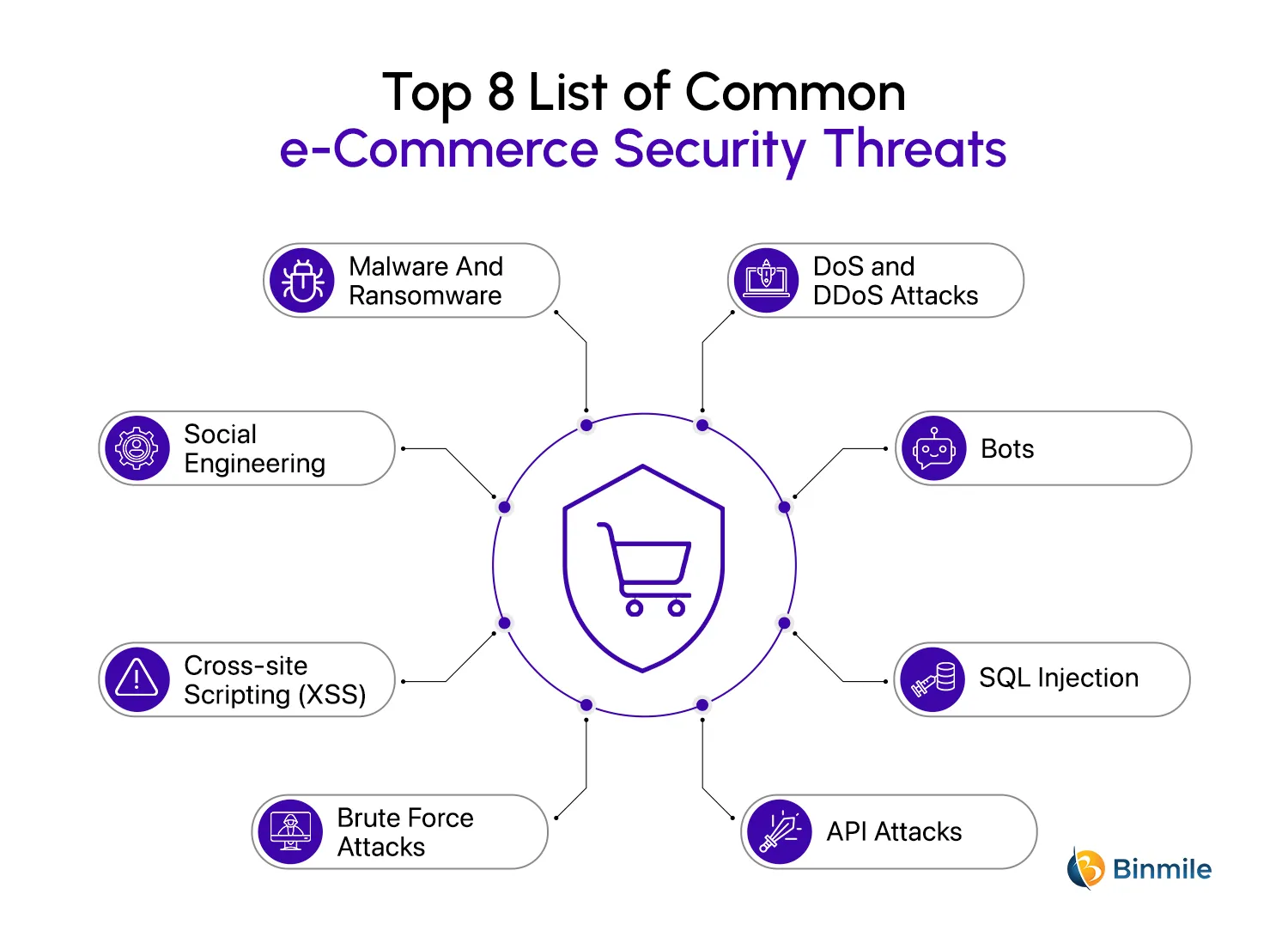In the rapidly evolving world of online business, e-commerce security has become a top priority. As more consumers turn to digital platforms for shopping, cybercriminals are finding new ways to exploit vulnerabilities. Protecting your online store from cyber threats is crucial to maintaining customer trust, safeguarding sensitive data, and ensuring business continuity.
1. Implement Strong Authentication Measures
Using strong authentication protocols helps prevent unauthorized access. Implement two-factor authentication (2FA) for both customers and administrative accounts. This adds an extra layer of security beyond just a password.
2. Secure Payment Gateways
Ensure that your e-commerce platform uses secure payment gateways compliant with Payment Card Industry Data Security Standards (PCI DSS). This helps protect customer payment information during transactions.
3. Use SSL Certificates
Secure Sockets Layer (SSL) certificates encrypt data transmitted between your website and users. This encryption protects sensitive information, such as login credentials and payment details, from being intercepted by malicious actors.
4. Regularly Update Software and Plugins
Outdated software can have security vulnerabilities that hackers exploit. Regularly update your e-commerce platform, plugins, and security patches to minimize risks.

5. Conduct Regular Security Audits
Perform security audits to identify potential vulnerabilities. Regular vulnerability assessments and penetration testing can help detect and address security gaps before they are exploited.
6. Implement Robust Firewalls and Anti-Malware Tools
Firewalls and anti-malware software act as the first line of defense against cyber threats. They help detect and block suspicious activities, malware, and unauthorized access attempts.
7. Secure Customer Data
Store customer data securely by using encryption and secure databases. Limit access to sensitive information only to authorized personnel, and never store unnecessary personal data.
8. Educate Employees and Customers
Cybersecurity awareness training for employees reduces the risk of human error. Educate your staff about phishing scams, social engineering, and safe online practices. Additionally, provide customers with tips on creating strong passwords and recognizing fraudulent activities.
9. Backup Data Regularly
Regular data backups ensure that you can recover quickly from cyber incidents like ransomware attacks. Store backups in secure, offsite locations to protect against data loss.
10. Monitor for Suspicious Activities
Use monitoring tools to detect unusual activities on your website, such as multiple failed login attempts or sudden spikes in traffic. Early detection allows for swift responses to potential threats.
Conclusion
E-commerce security is an ongoing process that requires vigilance, proactive measures, and continuous improvement. By implementing robust security practices, you can protect your online store from cyber threats, build customer trust, and ensure the longevity of your business. At Teqmidas I.T Solutions, we offer comprehensive security solutions tailored to your e-commerce needs, helping you stay ahead in the digital marketplace.








2 Comments
Felix Agyemang
Thank you for this! Online threats are real, and this article explains how to stay prepared.
LQ.
Thank you! We’ve recently had issues with bots attacking our site. These tips are gold.